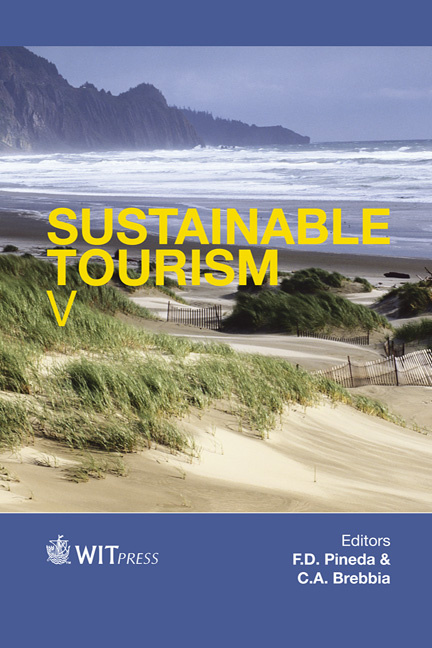Carbon Offsetting Programs In North America: Assessing The Involvement Of The Hospitality And Tourism Industry
Price
Free (open access)
Transaction
Volume
161
Pages
11
Page Range
259 - 269
Published
2012
Size
2,984 kb
Paper DOI
10.2495/ST120211
Copyright
WIT Press
Author(s)
R. Dodds, T. Bessada, J. Garcia, A. McDougall & N. Thiesen
Abstract
With increasing concerns of the growing emissions of greenhouse gases on a global scale by government agencies, academics, non-governmental organizations (NGO’s) and businesses, the carbon offsetting market around the world has evolved. During this worldwide evolution, however, North America has remained at a near standstill with regards to carbon offsetting . The compliance and voluntary offsetting market, often seen as a temporary solution to mitigating climate change, has faced criticism on the actual projects and the lack of standards in place. This in turn has produced a high level of consumer confusion regarding the credibility of carbon offsets and its overall impact on reducing greenhouse gas (GHG) emissions. This study determines the status of the voluntary carbon offset market in North America and the current level of the hospitality and tourism industry in mitigating its impact on climate change. Keywords: carbon offsetting, climate change, climate change impacts, climate change mitigation strategies, tourism and climate change, emission trading. 1 Introduction It is only in the last decade that the potential impacts of climate change on the global tourism industry have become a topic of discussion. Although there is a natural cycle of climate changes [2], the extreme changes that are now facing the planet are directly related to the rapid technological advances and population growth in the last century [2]. Many of the technologies and practices that have come to better humanity also cause these climatic changes through the release of greenhouse gases.
Keywords
carbon offsetting, climate change, climate change impacts, climate change mitigation strategies, tourism and climate change, emission trading.





